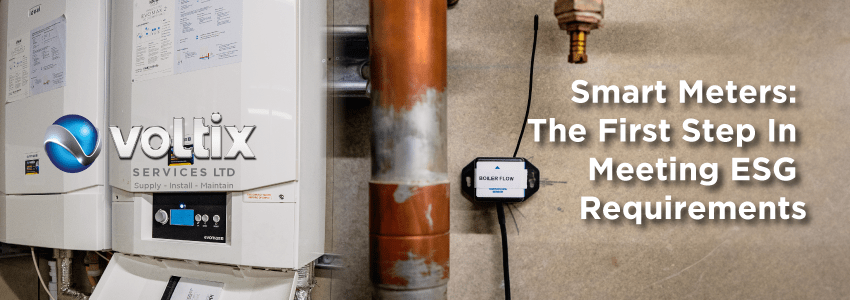How Smart Meters Simplify ESG Performance and Reporting
Environmental social governance (ESG) is becoming increasingly normative for businesses. In a recent poll, the Financial Times reported that more than half of investors plan to increase their ESG-oriented investments in 2024, making it an imperative focus point for business owners.
There are many reasons for the sharp uptake in ESG focus. Ethical and environmental considerations are paramount. Additionally for investors, ESG investments typically reflect more resilient assets. They are more flexible in response to regulatory changes and mitigate reputational and operational risks.
Furthermore, sustainable disclosure reporting is taking hold in jurisdictions around the world. Depending on the size of your business, ESG reporting may be mandated by law. With net-zero pressures and shifting regulation, finding simple, smart ways to monitor and report on meaningful metrics is a priority for businesses.
Energy Consumption, Emissions, and ESG Reporting
When it comes to environmental reporting, energy is a critical consideration. One third of the world’s energy consumption and 26% of energy-related emissions can be attributed to the operation of buildings. It has been reported that there was a 1% increase in consumption in 2022. This makes energy consumption a priority point for positive environmental change.
When it comes to ESG, the challenge is to consistently monitor and track consumption data for reporting. The next step is to analyse data in the medium and long term. This analysis can be used to create a roadmap for sustainable changes to cut consumption with minimal disruption.
It Starts With Smart Meters
The installation of a smart meter is the first step in reducing energy consumption, reducing your carbon footprint, and meeting ESG objectives. Consistent, granular monitoring and reporting on consumption – especially across multi-site operations – is a simple starting point.
The accuracy of data is the first clear benefit for ESG reporting purposes. Additionally, understanding consumption means areas of potential savings are easily identified – and implementation can take place with minimal disruption to operations. The insights from smart meters also mean strategic changes can be monitored for effectiveness over time, allowing for adjustments where necessary.
From peak power consumption cutting to a guided shift to renewables, smart meters are a fundamental tool in a measured approach to consumption savings.
Work With Facilities Maintenance Professionals For Optimised Energy Management
At Voltix Services, we partner with clients to implement energy saving strategies. This saves on operational costs and guides environmental strategy with ESG in mind. Following the installation of a smart meter, our team maps levels, trends, and profiles and benchmarks consumption.
We then create a blueprint of energy-saving strategies around specific equipment and processes for proactive change. This tailored energy management plan is created around your needs and targets to ensure attainable, meaningful change. For businesses looking to make the change to renewable energy sources, these insights are invaluable to planning for the shift.
Insights Mean Impact: Install a Smart Meter Today
Contact Voltix Services today to find out more about smart meter installations, energy management strategies, and the benefits for your ESG objectives.

